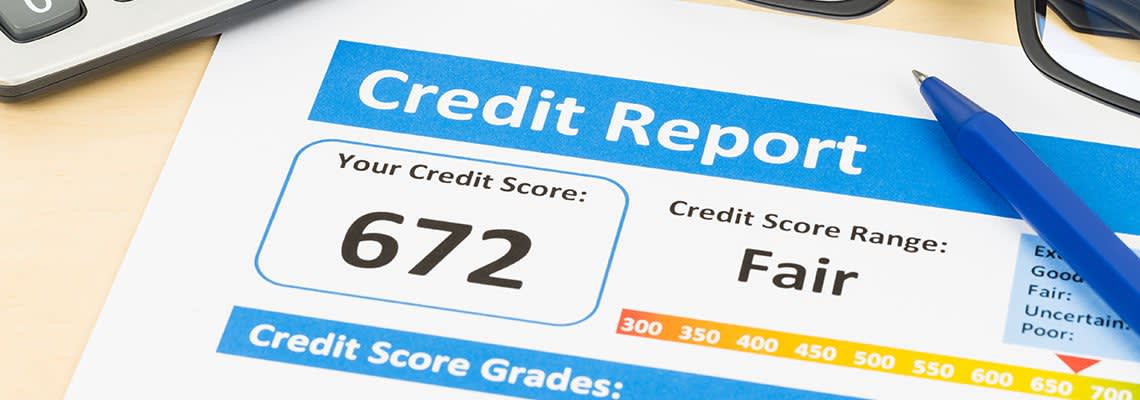
HOW LONG WILL IT TAKE
FOR MY CREDIT SCORE TO
RECOVER AFTER BANKRUPTCY?
There are a number of potential financial inconveniences that can make it difficult for you to pay your bills, settle debts, and other financial responsibilities. With lots of false assumptions and misinformation online, even someone who means well may sometimes provide inaccurate information. When thinking about your financial future and the possibility of filing for bankruptcy, understanding what to expect and how to navigate the bankruptcy process is crucial if you want to protect yourself and avoid potential pitfalls.
If you are considering filing for bankruptcy and want to learn more about the long-term effects it can have on your credit score, you should consult with an experienced Georgia bankruptcy attorney. At Pytte Law, I am dedicated to offering experienced and knowledgeable guidance on all bankruptcy-related matters. I am available to discuss your financial situation and help you understand the impact that bankruptcy can have on your credit score. My firm is proud to serve clients across Chatham County, Long County, Bryan County, Liberty County, and Statesboro Counties in Georgia.
Understanding Credit Scores
A credit score is a number between 300 and 850 that illustrates the creditworthiness of a consumer. Your credit score is based on your credit history, including the type of accounts you hold, the amount of debt you owe, payment history, and other factors. A higher credit score means that you are less of a risk and thus, improves your chances of getting approved credit, loans, or insurance.
Generally, creditors will use your credit score to evaluate your likelihood or potential risk of paying back any borrowed money or bills in a timely manner. Your credit score may also be used to set interest rates and spending limits. Whether or not you have ever filed for bankruptcy will factor into how the credit reporting agencies calculate your credit score.
What Is Considered a Good or Bad Credit Score?
As mentioned earlier, your credit score will be a number between 300 and 850. Below is a breakdown of the good-to-bad range:
A score between 750 and 850 is considered excellent.
A score between 700 and 749 is considered good.
A score between 650 and 700 is considered fair.
A score between 550 and 649 is considered poor.
A score between 300 and 549 is considered bad.
How Bankruptcy Can Affect Your Score
Filing for bankruptcy is a huge decision that can impact a number of different aspects of your life, including your credit score. Here's how filing for bankruptcy can affect your credit score:
Payment History
Filing for bankruptcy relieves you of your obligation to fully pay your covered debts. As a result of your payment history, potential lenders may reject your loan or credit application.
A Decrease in Your Credit Score
Depending on the bankruptcy option you're filing for, your credit score can be reduced to anywhere between 160 and 220 points. Thus, turning a good credit rating into a fair or poor one.
Future Loan Chances
Unfortunately, filing for bankruptcy significantly affects your ability to qualify for future loans. If your credit score falls into the range of fair or even poor, it may be difficult for you to get an auto loan, home loan, or a credit card.
The Long-Term Effect on Your Credit Report
Filing for Chapter 13 bankruptcy or Chapter 7 bankruptcy remains on your credit report for seven years or ten years, respectively. Since it will be in the public records section of your report, potential lenders will see the information there.
Although filing for bankruptcy often lowers your credit score, you can start to reestablish your creditworthiness instantly. Once your debts are discharged, you can immediately start to rebuild your credit. Over time, you will be able to regain financial stability, and you will have the opportunity to steadily improve your credit score.
How Long Will it Take to Recover?
According to a study from LendingTree, about 43% of consumers with a bankruptcy on their credit report had a credit score of 640 or higher within one year of filing for bankruptcy. The survey also revealed that approximately 65% of consumers had a credit score above 640 after two years. On average, it can take anywhere from one to two years for your credit score to go up after filing for bankruptcy. The most important thing is to maintain good financial habits.
Work with an Experienced Bankruptcy Attorney
Filing for bankruptcy in Georgia involves a number of different complicated procedures. Understanding your bankruptcy options and the impact they can have on your credit score requires proper guidance and advocacy from an experienced Georgia bankruptcy attorney. A knowledgeable attorney can help review your financial situation and determine how best to protect yourself.
At Pytte Law, I have devoted my career to offering experienced legal guidance and advocacy to clients in bankruptcy-related matters. As your legal counsel, I can:
Evaluate your case and help you explore all available bankruptcy options
Help determine which bankruptcy option is right for your unique financial situation
Determine your eligibility for Chapter 7 or Chapter 13 bankruptcy
Assist in filing your forms and submitting required documentation
Help negotiate with creditors to create a feasible arrangement
Establish effective strategies to help manage and ultimately improve your credit score after bankruptcy
Help you make informed financial decisions
Advise you on how to manage your finances and prevent potential pitfalls
If you or someone you know is considering bankruptcy, call or reach out to my firm — Pytte Law — today to schedule a one-on-one case assessment with an experienced bankruptcy attorney. I can guide you through the entire bankruptcy process step by step and answer all of your questions along the way. I'm also proud to serve clients across Savannah, Ludowici, Richmond Hill, Liberty County, and Hinesville, and Statesboro Georgia.